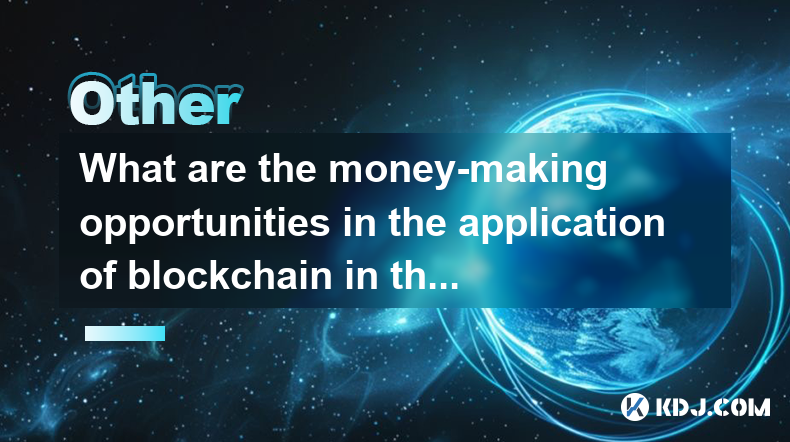-
 Bitcoin
Bitcoin $83,648.2009
1.02% -
 Ethereum
Ethereum $1,809.6283
-0.13% -
 Tether USDt
Tether USDt $0.9997
0.01% -
 XRP
XRP $2.1243
3.47% -
 BNB
BNB $596.8488
1.02% -
 Solana
Solana $122.2464
4.75% -
 USDC
USDC $0.9999
0.00% -
 Dogecoin
Dogecoin $0.1707
6.09% -
 Cardano
Cardano $0.6597
1.85% -
 TRON
TRON $0.2389
0.47% -
 Chainlink
Chainlink $12.8806
0.45% -
 UNUS SED LEO
UNUS SED LEO $9.1411
-3.19% -
 Toncoin
Toncoin $3.3929
-5.49% -
 Stellar
Stellar $0.2593
-0.69% -
 Avalanche
Avalanche $18.1618
0.48% -
 Sui
Sui $2.2500
0.45% -
 Shiba Inu
Shiba Inu $0.0...01228
0.96% -
 Hedera
Hedera $0.1636
0.95% -
 Litecoin
Litecoin $84.0523
0.98% -
 Polkadot
Polkadot $4.0193
-0.62% -
 MANTRA
MANTRA $6.2639
-2.15% -
 Bitcoin Cash
Bitcoin Cash $300.5204
0.31% -
 Bitget Token
Bitget Token $4.5235
0.86% -
 Dai
Dai $1.0000
0.00% -
 Ethena USDe
Ethena USDe $0.9990
-0.04% -
 Hyperliquid
Hyperliquid $11.9342
1.49% -
 Monero
Monero $215.8659
0.64% -
 Uniswap
Uniswap $5.8948
1.20% -
 Pi
Pi $0.5213
-9.02% -
 Pepe
Pepe $0.0...07186
7.99%
Is the ranking of Chinese blockchain apps real and reliable?
Rankings of Chinese blockchain apps are influenced by user engagement, transaction volume, and market trends, but biases and regulatory challenges can affect their reliability.
Apr 04, 2025 at 09:01 pm

The ranking of Chinese blockchain apps has become a topic of interest for many in the cryptocurrency community, as it provides insights into the popularity and adoption of blockchain technology within China. However, the reliability and authenticity of these rankings are often questioned. This article aims to delve into the factors that influence these rankings, the methodologies used by different ranking platforms, and the potential biases that may affect their accuracy. By understanding these elements, we can better assess whether the rankings of Chinese blockchain apps are real and reliable.
Factors Influencing the Ranking of Chinese Blockchain Apps
Several factors contribute to the ranking of Chinese blockchain apps. These include user engagement, transaction volume, market capitalization, and the app's overall impact on the blockchain ecosystem. User engagement is often measured by the number of active users and the frequency of their interactions with the app. Transaction volume reflects the app's utility and adoption rate, while market capitalization indicates the financial value and investor confidence in the app. Additionally, the app's impact on the broader blockchain ecosystem, such as its contribution to technological advancements or regulatory compliance, can also influence its ranking.
Methodologies Used by Ranking Platforms
Different platforms employ various methodologies to rank Chinese blockchain apps. Some platforms rely on quantitative data, such as user numbers and transaction volumes, while others incorporate qualitative assessments, such as expert opinions and user reviews. For instance, platforms like DappRadar and State of the DApps use a combination of on-chain data and user metrics to rank apps. They track metrics like daily active users, transaction counts, and volume to provide a comprehensive view of an app's performance. On the other hand, platforms like CoinGecko and CoinMarketCap focus more on market data, such as market cap and trading volume, to rank apps.
Potential Biases in Rankings
Despite the efforts to provide accurate rankings, several biases can affect the reliability of these rankings. One common bias is the manipulation of data by app developers or investors to boost their rankings. This can involve artificially inflating user numbers or transaction volumes through bots or incentivized user actions. Another bias arises from the selection of metrics used by ranking platforms. For example, focusing solely on market capitalization may overlook apps with high user engagement but lower financial value. Additionally, regional biases can occur if the ranking platform primarily caters to a specific audience, potentially skewing the rankings in favor of apps popular within that region.
Case Studies of Popular Chinese Blockchain Apps
To better understand the reliability of rankings, let's examine a few popular Chinese blockchain apps and their rankings across different platforms. Neo is often ranked highly due to its robust smart contract capabilities and strong community support. On DappRadar, Neo consistently ranks among the top blockchain platforms in terms of user engagement and transaction volume. Similarly, Tron is another popular app that frequently appears at the top of various rankings. Tron's high transaction volume and large user base contribute to its strong performance on platforms like State of the DApps and CoinMarketCap.
The Role of Regulatory Environment in Rankings
The regulatory environment in China plays a significant role in the ranking of blockchain apps. The Chinese government has imposed strict regulations on cryptocurrencies and blockchain technology, which can impact the development and adoption of these apps. For instance, the ban on initial coin offerings (ICOs) and the crackdown on cryptocurrency exchanges have forced many blockchain projects to operate under the radar or move offshore. These regulatory challenges can affect the rankings of Chinese blockchain apps, as apps that comply with regulations may receive more favorable treatment from ranking platforms. Conversely, apps that operate in a gray area may face difficulties in maintaining high rankings due to potential legal risks.
User Feedback and Community Perception
User feedback and community perception are crucial factors in determining the reliability of rankings. Platforms that incorporate user reviews and community sentiment into their rankings can provide a more holistic view of an app's performance. For example, platforms like Trustpilot and Reddit allow users to share their experiences with different blockchain apps, which can influence their rankings. Positive user feedback can boost an app's ranking, while negative feedback can lead to a decline. Additionally, community perception, such as the app's reputation within the blockchain community, can also impact its ranking. Apps that are well-regarded by the community are more likely to rank higher than those with a poor reputation.
The Impact of Technological Advancements
Technological advancements play a significant role in the ranking of Chinese blockchain apps. Apps that introduce innovative features or improve upon existing technologies are often ranked higher due to their potential to drive adoption and growth. For instance, Conflux, a high-performance blockchain platform, has gained attention for its ability to process transactions at a much faster rate than traditional blockchains. This technological edge has contributed to Conflux's strong performance in rankings on platforms like DappRadar and CoinGecko. Similarly, Nervos Network has been recognized for its unique approach to solving scalability and interoperability issues, which has helped it achieve high rankings on various platforms.
The Influence of Market Trends
Market trends can significantly influence the ranking of Chinese blockchain apps. For example, the rise of decentralized finance (DeFi) has led to increased interest in apps that offer DeFi services. Apps like JustLend and JustSwap on the Tron network have seen their rankings soar due to the growing popularity of DeFi. Similarly, the increasing focus on non-fungible tokens (NFTs) has boosted the rankings of apps that support NFT creation and trading, such as Neo's N3 platform. By staying attuned to market trends, blockchain apps can position themselves to achieve higher rankings and attract more users and investors.
The Role of Marketing and Public Relations
Marketing and public relations efforts can also impact the ranking of Chinese blockchain apps. Effective marketing campaigns can increase an app's visibility and attract more users, leading to higher rankings. For instance, Ontology has leveraged strategic partnerships and marketing initiatives to enhance its brand recognition and user base, which has contributed to its strong performance in rankings. Similarly, VeChain has utilized targeted marketing to highlight its supply chain solutions, resulting in increased adoption and higher rankings on platforms like CoinMarketCap. By investing in marketing and public relations, blockchain apps can improve their rankings and establish a stronger presence in the market.
The Importance of Transparency and Data Integrity
Transparency and data integrity are essential for ensuring the reliability of rankings. Platforms that provide clear and detailed information about their ranking methodologies and data sources are more likely to be trusted by users and investors. For example, DappRadar and State of the DApps offer comprehensive reports on their ranking criteria and data collection processes, which enhances their credibility. Conversely, platforms that lack transparency or have questionable data integrity may face skepticism and reduced trust. By prioritizing transparency and data integrity, ranking platforms can improve the reliability of their rankings and provide more accurate insights into the performance of Chinese blockchain apps.
The Role of Community Governance
Community governance can also influence the ranking of Chinese blockchain apps. Apps that involve their communities in decision-making processes and governance are often viewed more favorably by users and investors. For instance, Decentraland has implemented a decentralized governance model that allows its community to vote on key decisions, which has contributed to its strong performance in rankings. Similarly, Arweave has empowered its community to participate in governance, leading to increased engagement and higher rankings on platforms like DappRadar. By fostering community governance, blockchain apps can enhance their rankings and build stronger relationships with their users.
The Impact of Cross-Chain Compatibility
Cross-chain compatibility is another factor that can affect the ranking of Chinese blockchain apps. Apps that support interoperability between different blockchains are often ranked higher due to their ability to facilitate seamless transactions and data exchange. For example, Polkadot has gained recognition for its cross-chain technology, which has helped it achieve high rankings on platforms like CoinGecko. Similarly, Cosmos has been praised for its ability to connect different blockchains, contributing to its strong performance in rankings. By prioritizing cross-chain compatibility, blockchain apps can improve their rankings and attract more users and developers.
The Role of Developer Activity
Developer activity is a crucial indicator of an app's health and potential for growth. Apps with active developer communities are often ranked higher due to their ability to continuously improve and innovate. For instance, Ethereum has a large and active developer community, which has contributed to its dominance in rankings on platforms like DappRadar and CoinMarketCap. Similarly, Binance Smart Chain has seen a surge in developer activity, leading to increased adoption and higher rankings. By fostering a vibrant developer community, blockchain apps can enhance their rankings and drive long-term growth.
The Influence of Token Economics
Token economics can also impact the ranking of Chinese blockchain apps. Apps with well-designed token models that incentivize user participation and reward long-term holding are often ranked higher. For example, Cardano has implemented a staking mechanism that encourages users to hold and stake their tokens, which has contributed to its strong performance in rankings. Similarly, Tezos has a unique governance model that rewards token holders for participating in the network's decision-making processes, leading to increased engagement and higher rankings. By optimizing their token economics, blockchain apps can improve their rankings and attract more users and investors.
The Role of Security and Audits
Security and audits are essential for ensuring the reliability and trustworthiness of blockchain apps. Apps that undergo regular security audits and implement robust security measures are often ranked higher due to their ability to protect user funds and data. For instance, Chainlink has prioritized security by conducting regular audits and implementing advanced security protocols, which has contributed to its strong performance in rankings. Similarly, Aave has implemented a comprehensive security framework that includes regular audits and bug bounties, leading to increased trust and higher rankings. By prioritizing security and audits, blockchain apps can enhance their rankings and build stronger relationships with their users.
The Impact of User Experience
User experience is a critical factor in the ranking of Chinese blockchain apps. Apps that offer intuitive interfaces, seamless transactions, and responsive customer support are often ranked higher due to their ability to attract and retain users. For example, Uniswap has gained popularity for its user-friendly interface and efficient transaction processing, which has contributed to its strong performance in rankings. Similarly, SushiSwap has implemented a user-centric design that enhances the overall user experience, leading to increased adoption and higher rankings. By prioritizing user experience, blockchain apps can improve their rankings and attract more users and investors.
The Role of Partnerships and Collaborations
Partnerships and collaborations can also influence the ranking of Chinese blockchain apps. Apps that form strategic partnerships with other blockchain projects, enterprises, or institutions are often ranked higher due to their ability to expand their reach and enhance their offerings. For example, VeChain has partnered with major companies like Walmart China and BMW to implement blockchain solutions, which has contributed to its strong performance in rankings. Similarly, Ontology has collaborated with various enterprises to develop blockchain applications, leading to increased adoption and higher rankings. By fostering partnerships and collaborations, blockchain apps can enhance their rankings and drive growth.
The Impact of Regulatory Compliance
Regulatory compliance is a crucial factor in the ranking of Chinese blockchain apps. Apps that adhere to regulatory requirements and maintain transparent operations are often ranked higher due to their ability to operate legally and build trust with users and investors. For example, Huobi has implemented strict compliance measures to ensure its operations align with regulatory standards, which has contributed to its strong performance in rankings. Similarly, OKEx has prioritized regulatory compliance by obtaining necessary licenses and adhering to local regulations, leading to increased trust and higher rankings. By prioritizing regulatory compliance, blockchain apps can enhance their rankings and build stronger relationships with their users.
The Role of Community Engagement
Community engagement is a vital factor in the ranking of Chinese blockchain apps. Apps that actively engage with their communities through social media, forums, and events are often ranked higher due to their ability to build strong relationships and foster loyalty. For example, Cardano has a vibrant community that actively participates in discussions and events, which has contributed to its strong performance in rankings. Similarly, Polkadot has implemented various community engagement initiatives, leading to increased adoption and higher rankings. By prioritizing community engagement, blockchain apps can enhance their rankings and attract more users and investors.
The Impact of Scalability and Performance
Scalability and performance are essential for the ranking of Chinese blockchain apps. Apps that can handle high transaction volumes and maintain fast processing times are often ranked higher due to their ability to meet user demands and drive adoption. For example, Solana has gained recognition for its high scalability and fast transaction processing, which has contributed to its strong performance in rankings. Similarly, Avalanche has implemented advanced scalability solutions, leading to increased adoption and higher rankings. By prioritizing scalability and performance, blockchain apps can improve their rankings and attract more users and developers.
The Role of Interoperability
Interoperability is a crucial factor in the ranking of Chinese blockchain apps. Apps that support seamless interactions between different blockchains are often ranked higher due to their ability to facilitate cross-chain transactions and data exchange. For example, Polkadot has gained recognition for its interoperability features, which have contributed to its strong performance in rankings. Similarly, Cosmos has implemented advanced interoperability solutions, leading to increased adoption and higher rankings. By prioritizing interoperability, blockchain apps can enhance their rankings and attract more users and developers.
The Impact of Decentralization
Decentralization is a key factor in the ranking of Chinese blockchain apps. Apps that maintain a high level of decentralization are often ranked higher due to their ability to ensure security, transparency, and user control. For example, Bitcoin has maintained a high level of decentralization, which has contributed to its strong performance in rankings. Similarly, Ethereum has implemented various decentralization measures, leading to increased trust and higher rankings. By prioritizing decentralization, blockchain apps can enhance their rankings and build stronger relationships with their users.
The Role of Token Utility
Token utility is a vital factor in the ranking of Chinese blockchain apps. Apps that offer tokens with clear and valuable use cases are often ranked higher due to their ability to incentivize user participation and drive adoption. For example, Chainlink has implemented a token model that rewards users for providing data to the network, which has contributed to its strong performance in rankings. Similarly, Aave has introduced a token that offers governance rights and rewards, leading to increased engagement and higher rankings. By prioritizing token utility, blockchain apps can enhance their rankings and attract more users and investors.
The Impact of Market Sentiment
Market sentiment can significantly influence the ranking of Chinese blockchain apps. Positive market sentiment can boost an app's ranking, while negative sentiment can lead to a decline. For example, Ethereum has benefited from positive market sentiment due to its role in the DeFi and NFT sectors, which has contributed to its strong performance in rankings. Similarly, Binance Smart Chain has seen its rankings soar due to positive market sentiment surrounding its low transaction fees and high throughput. By monitoring and responding to market sentiment, blockchain apps can improve their rankings and attract more users and investors.
The Role of Liquidity
Liquidity is a crucial factor in the ranking of Chinese blockchain apps. Apps with high liquidity are often ranked higher due to their ability to facilitate seamless transactions and attract more users and investors. For example, Uniswap has gained recognition for its high liquidity, which has contributed to its strong performance in rankings. Similarly, SushiSwap has implemented various liquidity incentives, leading to increased adoption and higher rankings. By prioritizing liquidity, blockchain apps can enhance their rankings and build stronger relationships with their users.
The Impact of Network Effects
Network effects play a significant role in the ranking of Chinese blockchain apps. Apps that benefit from strong network effects, such as a large user base and active developer community, are often ranked higher due to their ability to drive adoption and growth. For example, Ethereum has benefited from strong network effects, which have contributed to its dominance in rankings. Similarly, Binance Smart Chain has seen its rankings soar due to its growing user base and developer community. By fostering network effects, blockchain apps can enhance their rankings and attract more users and developers.
The Role of Innovation
Innovation is a key factor in the ranking of Chinese blockchain apps. Apps that introduce new features or improve upon existing technologies are often ranked higher due to their potential to drive adoption and growth. For example, Cardano has gained recognition for its innovative approach to blockchain technology, which has contributed to its strong performance in rankings. Similarly, Polkadot has implemented advanced innovations in interoperability, leading to increased adoption and higher rankings. By prioritizing innovation, blockchain apps can enhance their rankings and attract more users and developers.
The Impact of User Adoption
User adoption is a vital factor in the ranking of Chinese blockchain apps. Apps with high user adoption rates are often ranked higher due to their ability to demonstrate real-world utility and attract more users and investors. For example, Tron has seen high user adoption due to its focus on entertainment and gaming, which has contributed to its strong performance in rankings. Similarly, Neo has implemented various user-friendly features, leading to increased adoption and higher rankings. By prioritizing user adoption, blockchain apps can enhance their rankings and build stronger relationships with their users.
The Role of Token Distribution
Token distribution is a crucial factor in the ranking of Chinese blockchain apps. Apps with fair and transparent token distribution models are often ranked higher due to their ability to build trust and attract more users and investors. For example, Tezos has implemented a fair token distribution model that rewards early adopters and contributors, which has contributed to its strong performance in rankings. Similarly, Cardano has prioritized transparent token distribution, leading to increased trust and higher rankings. By prioritizing token distribution, blockchain apps can enhance their rankings and build stronger relationships with their users.
The Impact of Regulatory Environment
The regulatory environment in China plays a significant role in the ranking of blockchain apps. The Chinese government has imposed strict regulations on cryptocurrencies and blockchain technology, which can impact the development and adoption of these apps. For instance, the ban on initial coin offerings (ICOs) and the crackdown on cryptocurrency exchanges have forced many blockchain projects to operate under the radar or move offshore. These regulatory challenges can affect the rankings of Chinese blockchain apps, as apps that comply with regulations may receive more favorable treatment from ranking platforms. Conversely, apps that operate in a gray area may face difficulties in maintaining high rankings due to potential legal risks.
Common Questions Related to the Ranking of Chinese Blockchain Apps
Q: How do different platforms rank Chinese blockchain apps?
A: Different platforms use various methodologies to rank Chinese blockchain apps. Some platforms, like DappRadar and State of the DApps, rely on a combination of on-chain data and user metrics, such as daily active users, transaction counts, and volume. Others, like CoinGecko and CoinMarketCap, focus more on market data, such as market capitalization and trading volume. The choice of metrics and the weighting given to each can significantly impact the rankings.
Q: What are the potential biases in the ranking of Chinese blockchain apps?
A: Several biases can affect the reliability of rankings. Data manipulation by app developers or investors to boost rankings is a common issue. Additionally, the selection of metrics used by ranking platforms can introduce bias, as focusing on certain metrics may overlook other important factors. Regional biases can also occur if the ranking platform primarily caters to a specific audience, potentially skewing the rankings in favor of apps popular within that region.
Q: How does the regulatory environment in China impact the ranking of blockchain apps?
A: The regulatory environment in China significantly impacts the ranking of blockchain apps. Strict regulations on cryptocurrencies and blockchain technology can affect the development and adoption of these apps. Apps that comply with regulations may receive more favorable treatment from ranking platforms, while those operating in a gray area may face difficulties in maintaining high rankings due to potential legal risks.
Q: What role does user feedback and community perception play in the ranking of Chinese blockchain apps?
A: User feedback and community perception are crucial factors in determining the reliability of rankings. Platforms that incorporate user reviews and community sentiment into their rankings can provide a more holistic view of an app's performance. Positive user feedback can boost an app's ranking, while negative feedback can lead to a decline. Community perception, such as the app's reputation within the blockchain community, can also impact its ranking.
Q: How do technological advancements influence the ranking of Chinese blockchain apps?
A: Technological advancements play a significant role in the ranking of Chinese blockchain apps. Apps that introduce innovative features or improve upon existing technologies are often ranked higher due to their potential to drive adoption and growth. For example, apps like Conflux and Nervos Network have gained recognition for their technological advancements, contributing to their strong performance in rankings.
Disclaimer:info@kdj.com
The information provided is not trading advice. kdj.com does not assume any responsibility for any investments made based on the information provided in this article. Cryptocurrencies are highly volatile and it is highly recommended that you invest with caution after thorough research!
If you believe that the content used on this website infringes your copyright, please contact us immediately (info@kdj.com) and we will delete it promptly.
- Ripple (XRP) Targets $5 in 5 Weeks.
- 2025-04-05 08:30:12
- Hamster Kombat Becomes a Huge Hit in the Crypto Gaming World
- 2025-04-05 08:30:12
- TOY CHAIN has partnered with the AWS Generative AI Innovation Center to build TAIX
- 2025-04-05 08:25:12
- Institutional Investors Questioning the Growing Correlation Between Bitcoin and Tech Stocks
- 2025-04-05 08:25:12
- BitMEX Founder Arthur Hayes Predicts Bitcoin (BTC) Will Resist Selling Pressure and Hold $76.5k Until the US Tax Deadline
- 2025-04-05 08:20:12
- Cryptocurrency Whale Deposits 71448 Solana (SOL) Worth $8.55 Million into Binance
- 2025-04-05 08:20:12
Related knowledge

Is the ranking of Chinese blockchain apps real and reliable?
Apr 04,2025 at 09:01pm
The ranking of Chinese blockchain apps has become a topic of interest for many in the cryptocurrency community, as it provides insights into the popularity and adoption of blockchain technology within China. However, the reliability and authenticity of these rankings are often questioned. This article aims to delve into the factors that influence these ...

What are the future development trends of blockchain game development?
Apr 03,2025 at 05:00am
Blockchain technology has revolutionized various industries, and gaming is no exception. As we look to the future, several trends are set to shape the development of blockchain games. These trends not only promise to enhance the gaming experience but also to integrate blockchain technology more seamlessly into the gaming ecosystem. Let's explore these t...

What are the maintenance costs of blockchain system development?
Apr 03,2025 at 06:07pm
The maintenance costs of blockchain system development are multifaceted and depend on various factors. These costs can include technical maintenance, security updates, infrastructure expenses, and personnel costs. Understanding these elements is crucial for anyone planning to develop or maintain a blockchain system. Technical MaintenanceTechnical mainte...

What are the money-making models of blockchain games?
Apr 04,2025 at 02:00pm
Blockchain games have emerged as a revolutionary way for players to earn real money while enjoying their favorite pastime. These games leverage the power of blockchain technology to create unique money-making models that benefit both the players and the developers. In this article, we will explore the various money-making models of blockchain games and ...

What are the money-making opportunities in the application of blockchain in the medical industry?
Apr 03,2025 at 03:35am
The integration of blockchain technology into the medical industry presents a myriad of money-making opportunities that can revolutionize healthcare systems. Blockchain's inherent characteristics, such as transparency, security, and immutability, make it an ideal solution for various medical applications. By leveraging blockchain, companies can develop ...

What are the money-making opportunities when blockchain and artificial intelligence are combined?
Apr 04,2025 at 01:28am
The convergence of blockchain and artificial intelligence (AI) presents a myriad of money-making opportunities within the cryptocurrency circle. This fusion leverages the decentralized and secure nature of blockchain with the analytical prowess of AI, creating innovative solutions and platforms that can generate significant revenue. From enhancing tradi...

Is the ranking of Chinese blockchain apps real and reliable?
Apr 04,2025 at 09:01pm
The ranking of Chinese blockchain apps has become a topic of interest for many in the cryptocurrency community, as it provides insights into the popularity and adoption of blockchain technology within China. However, the reliability and authenticity of these rankings are often questioned. This article aims to delve into the factors that influence these ...

What are the future development trends of blockchain game development?
Apr 03,2025 at 05:00am
Blockchain technology has revolutionized various industries, and gaming is no exception. As we look to the future, several trends are set to shape the development of blockchain games. These trends not only promise to enhance the gaming experience but also to integrate blockchain technology more seamlessly into the gaming ecosystem. Let's explore these t...

What are the maintenance costs of blockchain system development?
Apr 03,2025 at 06:07pm
The maintenance costs of blockchain system development are multifaceted and depend on various factors. These costs can include technical maintenance, security updates, infrastructure expenses, and personnel costs. Understanding these elements is crucial for anyone planning to develop or maintain a blockchain system. Technical MaintenanceTechnical mainte...

What are the money-making models of blockchain games?
Apr 04,2025 at 02:00pm
Blockchain games have emerged as a revolutionary way for players to earn real money while enjoying their favorite pastime. These games leverage the power of blockchain technology to create unique money-making models that benefit both the players and the developers. In this article, we will explore the various money-making models of blockchain games and ...

What are the money-making opportunities in the application of blockchain in the medical industry?
Apr 03,2025 at 03:35am
The integration of blockchain technology into the medical industry presents a myriad of money-making opportunities that can revolutionize healthcare systems. Blockchain's inherent characteristics, such as transparency, security, and immutability, make it an ideal solution for various medical applications. By leveraging blockchain, companies can develop ...

What are the money-making opportunities when blockchain and artificial intelligence are combined?
Apr 04,2025 at 01:28am
The convergence of blockchain and artificial intelligence (AI) presents a myriad of money-making opportunities within the cryptocurrency circle. This fusion leverages the decentralized and secure nature of blockchain with the analytical prowess of AI, creating innovative solutions and platforms that can generate significant revenue. From enhancing tradi...
See all articles





















































































